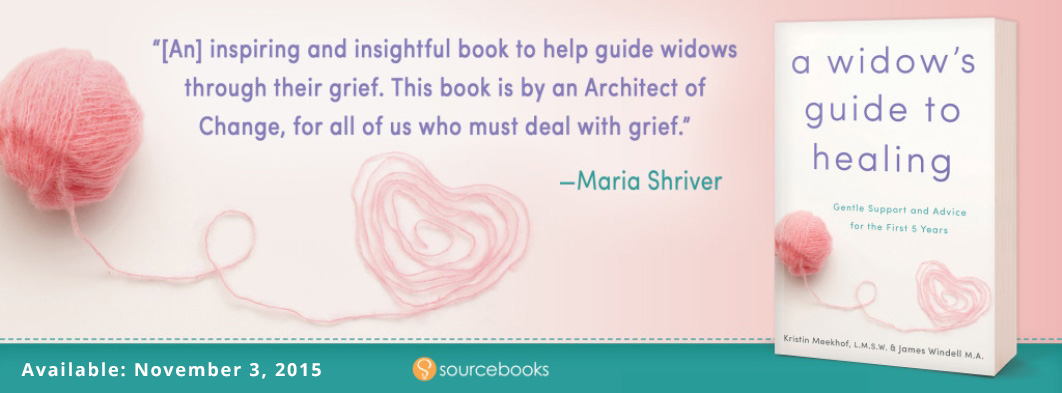The Widow’s Guilt
When I started to write an upcoming book for widows with my co- author James Windell, I didn’t know quite what to expect. Sure, I was a young widow and talked about my own experience here but I hadn’t reached out to other widows. I quickly learned that no widow’s loss is exactly the same.
Nearly every day, you can read online about a tragedy in which a wife becomes a widow. You can see the look of despair on her face and sense the loss. When I talk with women who are recently widowed, one of the first things I’m asked is, “How did you get through it?” I have experienced this intense rawness that a new widow feels. I remember feeling like my world ended, desperate to find the one thing that would take away the hurt. The real problem is that there is no magic cure for grief.
I know the days following the funeral for widows are depressing. After my husband’s death, I remember coming home after work to complete silence. We had no children together, so there was no one to distract me. Those months following his death were in the midst of a Michigan winter. This meant it was dark by 6 p.m. and cold. Curled up with a blanket on the couch, I had the fantasy that I would quit my job, move to Hawaii and walk on the beach. It was, of course, just a fantasy. The cold reality was that I needed a job with health care benefits.
Nearly all of the widows James and I talked with report similar emotions: fear, anxiety, shock, loneliness, sadness and depression. There is no question that there are many challenges widows face, but the first challenge will relate to experiencing and coping with emotions. We also found that there is a difference in some of the emotional reactions based on how the husband died.
Widows whose husbands died as a result of substance abuse or an illness related to this also reported feeling guilt and shame. It is difficult because the widow often saw their spouse’s life deteriorate in a downward spiral. The widows often remarked that they tried various interventions throughout the marriage, only to feel, deep down, that their spouse lacked willpower to quit. The widows covered for his use, made excuses to others, and worst of all lied to herself.
When the widows discussed the cause of their husband’s death with others, they said they would often see a look in other’s eye that said, “What did you expect”? Sometimes, others had nothing positive to say about their spouse. One widows said, she asked a family member to make a few remarks at her husband’s funeral and was told, “I have nothing good to say. He was always a drunk to me.” Sensing judgement and criticism, widows often become more isolated.
This isolation led to depression. These widows would often ruminate on the past, wondering if they were somehow to blame for his substance abuse use. One widow admits that she gave up on her spouse and obtained a legal separation. She hoped this action would force him into treatment. Shortly after the separation, he died. She blamed herself for his death, feeling guilty for demanding the split, and thought he would be alive had they remained together. She sunk into a depression, and eventually at the urging of her family, entered into psychiatric treatment.
Coping with this type of guilt intertwined with grief is a heavy task, and there is nothing wrong with seeking licensed professional therapy. There are some others things that you can do to help with the guilt:
1. Give yourself grace — you deserve a pass. This is not a time to expect perfection from yourself.
2. Forgive yourself — if you can’t let go of everything, then, start with a few small things.
3. Seek non-judgemental support. This may be a trusted friend, a relative or member of a support group. You are already your own toughest critic. You need someone who is there to listen and love.
You can also read this article on The Huffington Post.







